The theme of the World Environment Day in 2020 is ‘Celebrate Biodiversity’. Here are stories from our projects on how people and nature are connected deeper than ever.
In the 2007 movie called ‘Bee Movie’, Barry the Bee finds that humans have been stealing honey for millions of years and decides to sue humanity for theft. While he does get a ban on humans stealing honey, what happens is an upset to the delicate balance of nature. When the bees stop working, earth dries up – colours vanish from the surface.
The movie was probably a reminder on how a tiny bee, rather the absence of it, could become a threat to human kind. The co-existence of flora and fauna is something humankind takes for granted. This biodiversity is what the World Environment Day celebrates – calling out to the world to be #ForNature in all our actions.
At Hand In Hand India, we work with the environment in more than one way. Our project with National Bank for Agriculture and Rural Development (NABARD) – The Green Livelihood Project in the Pachamalai hills of Tamil Nadu is our way of giving back to nature. This intervention has given a new lease of life for landless labourers and farmers of the hills. The project focuses on three aspects; strengthening the tradition of milch animal rearing, generating steady livelihood using traditional farming practices and finally ensuring the mountain folk don’t migrate and continue to look after their homeland.
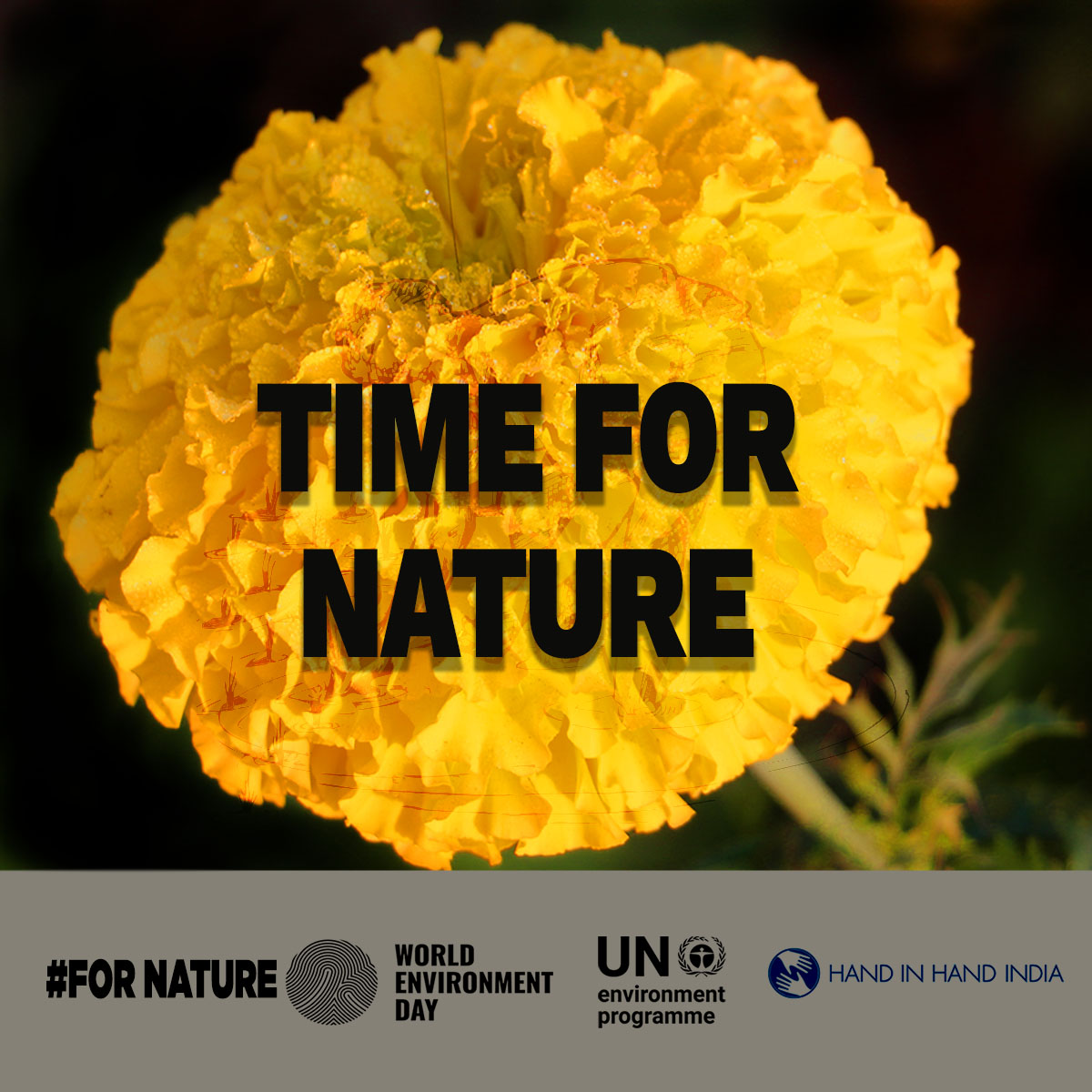
Here are four stories of people from these hills and their unique connection to the environment.
Livelihoods by Nature
P.Ravi | Farmer
The Pachamalai hills of Tamil Nadu are remote and fed by seasonal rains only. Livelihoods for these farmers were dependent on the standard crops of the hills – tapioca and castor seeds. These were the only crops that would survive the rocky soil that receives very little rain.
Hand in Hand India identified 1300 farmers in Pachamalai who owned over one acre of land for a plantation project. One among these was Ravi, who was given saplings of 50 mango trees, 50 cashew and 80 silver oak trees. Pachamalai being a rain-fed region, farmers required basic water storage mechanisms such as a field bund and tanks. Ravi and others were aided with these structures.
Before he became part of the Green Livelihood project, Ravi was like others – planting acres of the lazy crop or tapioca on all his six acres of land. Ravi and other farmers here were following habits blindly. Neither did they think innovatively nor look back at the positives of what was carried out in the times of their forefathers. The traditional wisdom of alternating crops in cycles across the year in order to let the soil rest and bring back fertility without pesticides – these ideas were brought back with Hand in Hand India’s implementation methods.
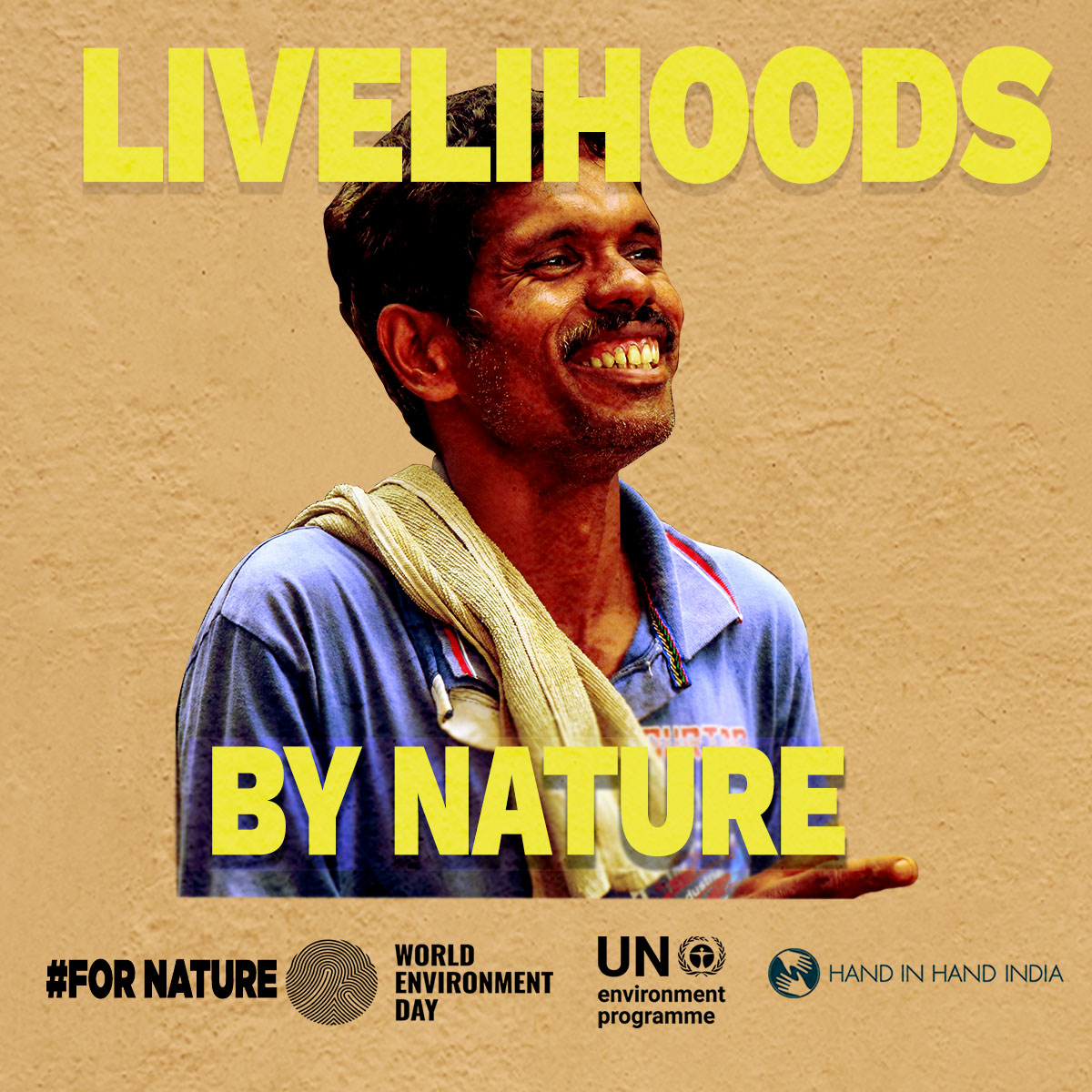
Today, Ravi has extensively tried multi-cropping. One small part is devoted to different vegetables and paddy – these he harvests in three cycles throughout the year. On a larger area of 4 acres, he has planted coffee, mango, cashew and silver oak trees. Yet another part of his land has the popular crop of the hills – tapioca. Among all these plantations, he also has invested in api-culture units and a vermicompost pit. The cows on his land ensure the manure in the pit is always replenished. Cash crops such as pepper, mango and cashew were introduced to boost income in future years. Meanwhile crop-rotation ensures he receives a handsome profit of INR 1lakh per annum.
P. Ravi’s farm in Vengamudi, Pachamalai today sets the gold standard for farmers in the hills!
Pollination by Nature
Kuppuswami | Apiculturist
Barry the Bee would have changed his mind about the honey-human-case if he had spoken to Kuppuswami. Talking to Kuppuswami gives one a feeling of contentment. This 50 year old Apiculturist from Tamil Nadu can easily be mistaken for a Godman, given his simple attire and constant chanting of hymns. Infact, Kuppuswami believes that his bees produce more honey as they are happy listening to his hymns.
NABARD and Hand in Hand India are focusing on reviving the occupation back in the fields. Pollinating bees are responsible for 75% of food crops around the world. Bees travel within 3-5 km radius to gather nectar. And farmers are able to extract more honey between January to June (in these hills) during the flowering months. They are provided 3 boxes of honey bees and a well-detailed training workshop on beekeeping. A couple of months later, Apiculturists are ready to harvest their honey!
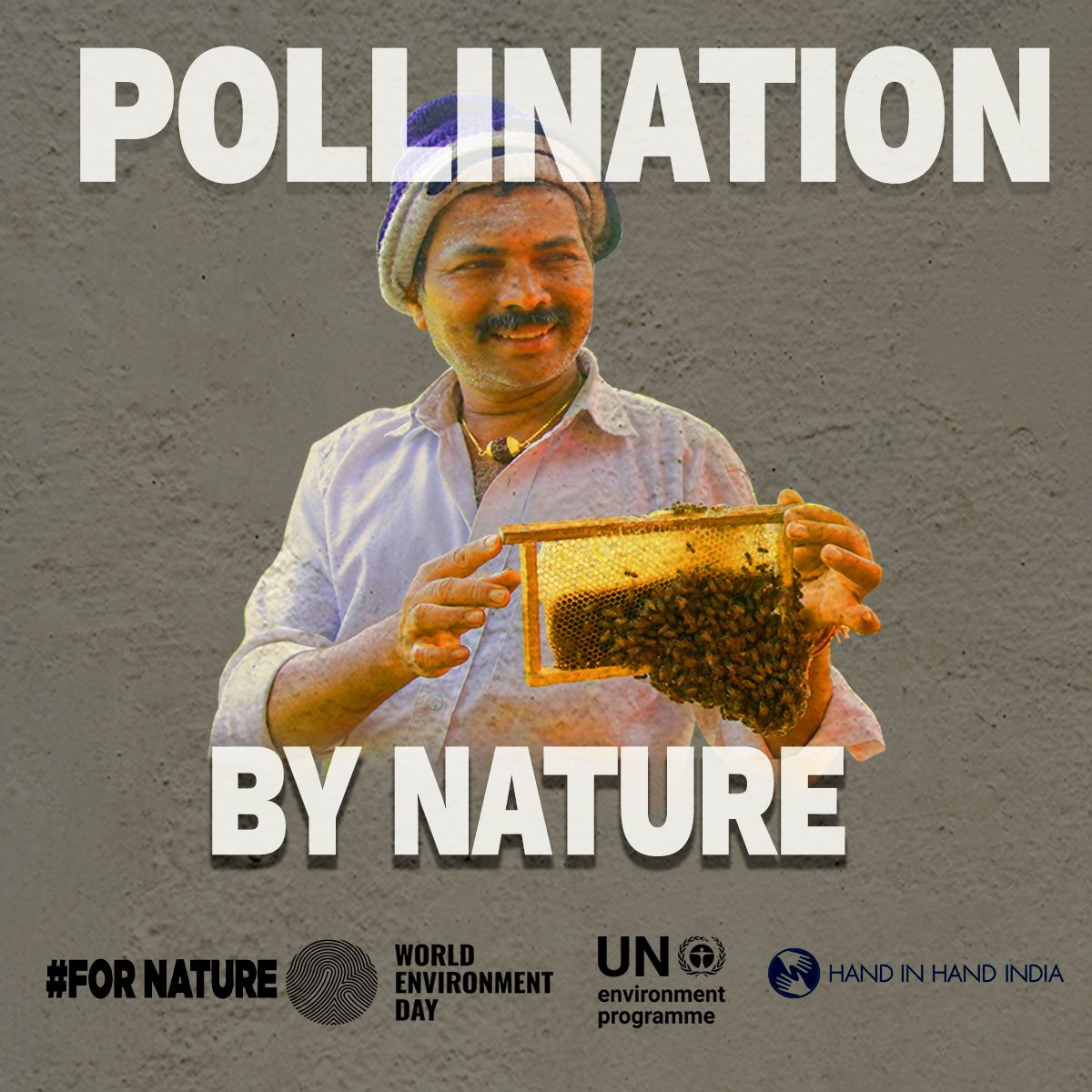
Kuppuswami is a farmer first and has acres where he cultivates different crops organically using crop-rotation techniques. In the last year however, he undertook the Hand in Hand India training for Apiculture and has since then set up 3 bee boxes. Over the last six months, the boxes have yielded nearly 8 litres of honey, each litre being sold for INR 1,100.
Kuppuswami is a content man, he earns a steady income of INR 3 lakh every year and is quite happy with his life. He is able to look after his family and gets his daughters to study. Kuppuswami has very little complaints and is at peace with nature.
Clean Air by Nature
Vasanthi | Smokeless Chula User
It’s a smoke-free revolution of sorts in the hills of Pachamalai. Smokeless, affordable and efficient chulas are replacing traditional chulas at homes in Pachamalai.
Under the NABARD and Hand In Hand India’s Pachamalai project, 100 households have been given subsidised smokeless chulas to rural households. The reason being, it’s durable, requires minimum maintenance and uses up to 50% less firewood than traditional Chula. It’s designed in such a way that adequate oxygen is supplied in the burning area which results in efficient combustion and up to 80% less smoke. The chula also reduced drudgery for women who walk miles to collect firewood and gives them time for themselves. Women Empowerment is one key factor we are addressing here too.
Vasanthi lives in Pachamalai and her everyday routine was a back-breaker. Up at 4m to collect firewood, she would walk 3 hours and carry a 20kg bundle on her head. Wood is the most common fuel for rural and hill folk, as LPG transportation is tougher and more expensive here. Hours spent in the kitchen with smoke and heat did Vasanthi more harm than good.
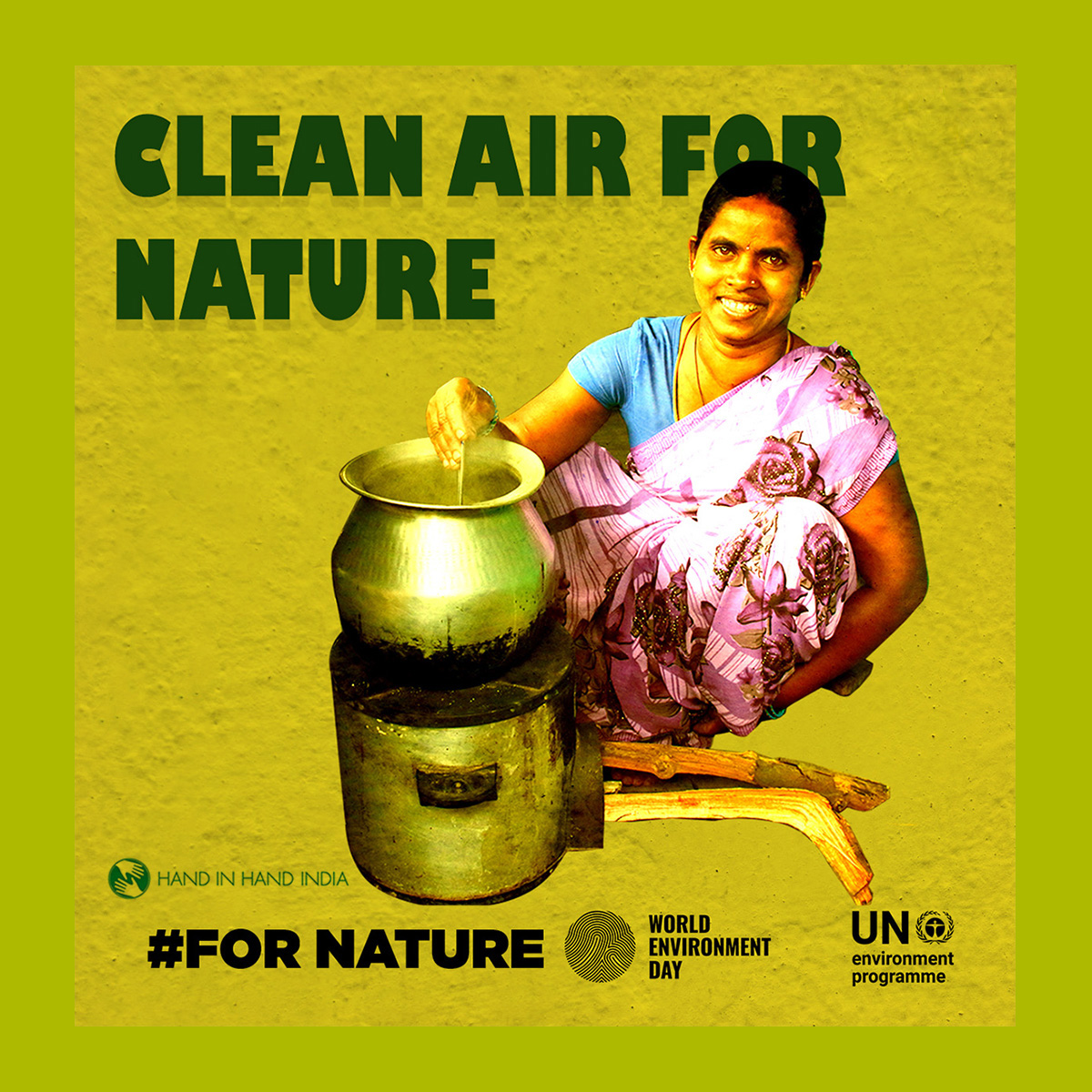
Now, with the smokeless Chula she spends less time in the kitchen and therefore has changed her life drastically. The smokeless Chula conserves time and fuel, is easy on the pocket and environment-friendly. It has cut down the usage of wood by half. Earlier she used 1 kg of wood for 20 days, now she uses the same for 40 days. Evidently, this has reduced her visits to the forest to collect firewood.
The smokeless chula comes in 2 sizes, the large on costs ₹1750 and the small one cost ₹1250. It is said that a rural household using the smokeless chulha will save 1500 kg for firewood in a year. This translates into savings of Rs. 3,000 per annum. And if an entire village of about 200 firewood burning households adopts the new chulha then this village will be saving 600 trees per annum.
Clean air and low carbon emissions are not far away!
Fertilizer by Nature
Jyothi | Farmer
Meet 34-year-old Jyothi, who might as well just be called Pachamalai’s superwoman. The first female farmer in Pachamalai has very rightly earned this name for herself.
This is how a typical day in Jyothi’s busy life looks like – she is up by 4 am and heads to the field around 9 am. If one thinks she does nothing between this time, they are sadly mistaken. Jyothi collects wood from the forest, finishes up household chores, cooks for the family and gets her 3 children ready for school. Post working on the farm, she is a clerical assistant. This requires her to work in an office for the next few hours, under a clerk. And between the hustling, she is also the leader of a Self Help Group. When asked if she ever gets tired, to which she smilingly responds, “I have no time to get tired!”.
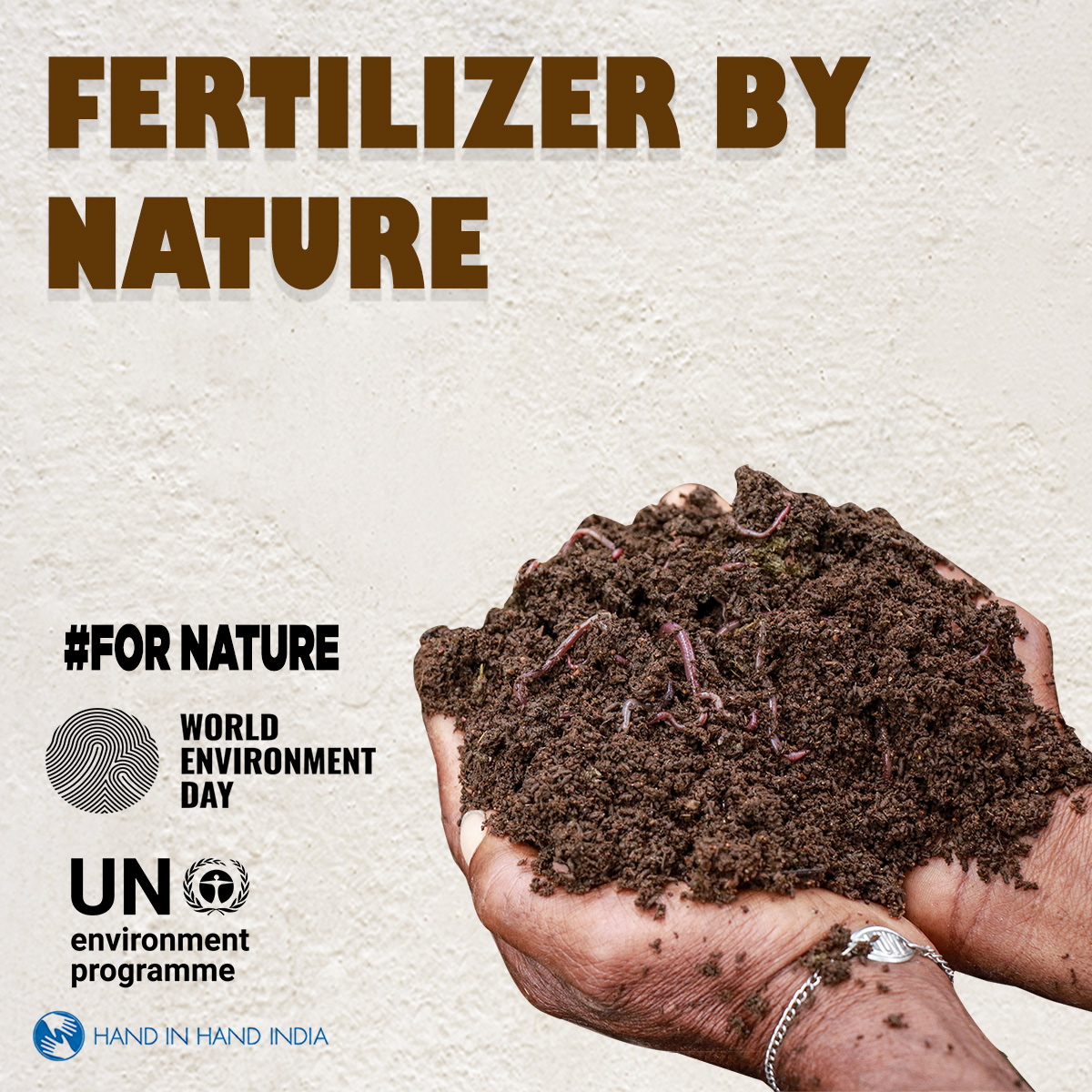
Jyothi became part of the NABARD and Hand in Hand India’s Green Livelihood Project in 2017 as well as the vermicomposting project. While she continues to grow tapioca by herself, she received 50 saplings of mango and cashew. A total of a 5-acre land of her crops is still waiting for their first yield. She also supplements her income with selling the milk from her cows.
Like all farmers, Jyothi has faced the terrible lows of her farm. Her most expensive, yet constant expenditures have been pesticides and labour. She purchases pesticides by taking small loans from the SHG. Now however Jyothi has taken on a bold step with Hand in Hand India’s guidance – going completely natural on her crops!
The NABARD- HiH India project has taught her to be more resourceful. The cow dung from her farm is now being used in vermicompost. She has been provided 2 kgs of earthworms and concrete bricks to construct vermicompost in her own backyard. The modest Vermicompost unit does its work quietly, but is of utmost importance to Jyothi’s farm. She feeds it 10kg of dung from her cows and ends up with 3 sacks of vermicompost weighing 50kg each. The compost is later used in her crops. She really hopes to get a good first yield, from this natural experiment.
Saying NO to pesticides and going natural is Jyothi’s way of connecting to nature! See more superwomen like Jyothi here.
The Pachamalai Tribal Sustainable Livelihoods Programme
Our Pachamalai Project is in partnership with NABARD and aims to help tribes in remote hills such as these, gain social and economic development. The project covers 41 villages in Trichy and Salem districts (Tamil Nadu), covering a total area of 1322 acres of land area. The highly successful project has also translated into a viable Farmer Producer Organisation for the farmers of this region. We have implemented similar programmes in Jawadhu hills too.
Hand in Hand India’s Natural Resource Management wing has been implementing watershed programmes successfully since 2006. We work in the states of Karnataka, Madhya Pradesh and Tamil Nadu. Our team trains farmers in reviving agricultural traditions and promotes organic farming with training support. We also have helped organic farmers come together under a common umbrella called the ‘Indian Natural Farmer Producer Company Ltd. and help them market their products. Read more about our work here.






